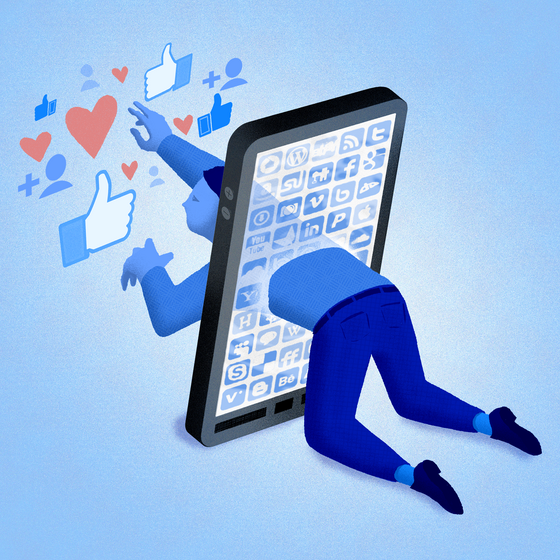Social media is everywhere you look. It could be a professional company’s promotional page or simply a high schooler’s private “finsta” account.
With an increased usage comes an increased prevalence of addiction. In recent years addiction levels have spiked with roughly 33 million or 10 percent of Americans reporting that they feel dependent on social media. Researchers have questioned what, besides the overall progression of technology, prompts this severe addiction.
Specific algorithms are utilized by social media companies to instill addictions within users. The infamous TikTok “For You page” is a great example, as its never-ending scroll with short and entertaining videos is able to attract a multitude of users. TikTok has been reported to have been downloaded around 3.5 billion times throughout the world, quickly obtaining popularity due to its clever algorithms. Many other companies have adopted similar concepts to the For You page, including YouTube shorts and Instagram Reels.
Such platforms promote shorter attention spans, with 50% of TikTok users feeling “stressed” watching videos longer than a minute. TikTok has also been claimed to make use of user statistics, such as the average amount of time per video and likes/comments, to create a personalized array of videos. This algorithm is known as filter bubbles and is an effective technique in providing quality content for users. This convenience and customized entertainment serves as a means of creating temptation to check the app. Therefore, it makes sense why it is so easy to get distracted.
Additionally, the interfaces of these platforms enable users to use the apps with relative comfort. For example, many platforms have videos that take up the entire screen of a user’s device, allowing for an immersive experience. Straightforward and accessible features enable users to be able to utilize technology with ease. Therefore, a more minimalistic interface is typically more successful in attracting a user. Also, a prominent search engine is an example of an ideal feature that helps users easily navigate their respective platform.
It is easy to get addicted to social media because of the release of dopamine, a “feel good” chemical, in the brain during usage. Excessive validation and reliance on social media creates a temptation to seek more dopamine. Therefore, similar to drugs, withdrawal symptoms can develop and worsen over time.
So, the next time you catch yourself checking social media, know that it is more than just a lack of discipline. Understanding these algorithms can help you understand how to combat addiction and better manage your time.


